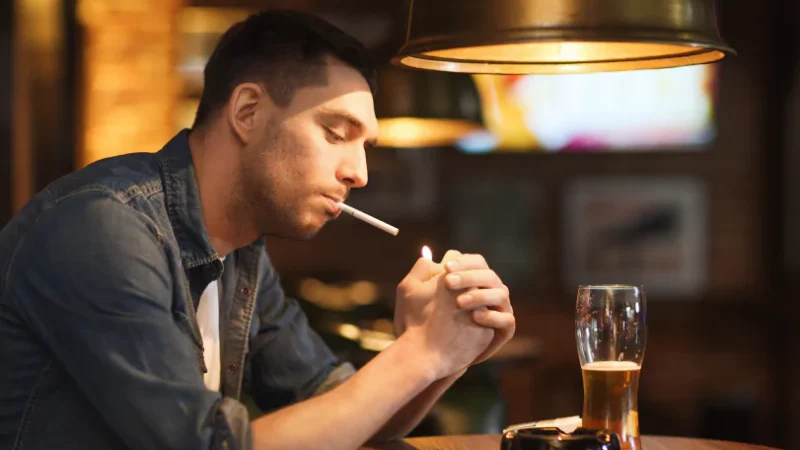The Impact of Smoking and Alcohol on Cancer Risk

Cancer is one of the most serious health concerns worldwide, and two of the biggest lifestyle factors that increase cancer risk are smoking and alcohol consumption. While both are common habits, they can have severe consequences on health, especially when combined. In this blog, we’ll explore how smoking and alcohol contribute to cancer and what you can do to reduce your risk.
Smoking and Cancer: A Deadly Connection
How Does Smoking Cause Cancer?
Smoking is the leading cause of preventable cancer worldwide. Tobacco smoke contains more than 7,000 chemicals, and at least 70 of them are known to cause cancer. These chemicals damage the DNA in cells, leading to uncontrolled cell growth, which forms cancerous tumors.
Types of Cancer Caused by Smoking
Smoking is directly linked to several types of cancer, including:
Lung cancer (responsible for 85% of all lung cancer cases)
Mouth and throat cancer
Esophageal cancer
Stomach cancer
Pancreatic cancer
Bladder cancer
Cervical cancer
Kidney cancer
Even secondhand smoke (breathing in smoke from others) increases cancer risk, particularly in children and non-smokers exposed to it regularly.
Does Quitting Smoking Reduce Cancer Risk?
Yes! The sooner you quit, the lower your risk becomes. Studies show that within five years of quitting, the risk of developing cancers like mouth, throat, and esophagus decreases significantly. After 10-15 years, the risk of lung cancer drops to nearly that of a non-smoker.
- A family history of cancer (especially before age 50).
- Multiple relatives with the same type of cancer.
- A personal history of cancer at a young age.
- Rare cancers that are known to be hereditary.
Alcohol and Cancer: A Risky Combination
How Does Alcohol Increase Cancer Risk?
Alcohol is classified as a Group 1 carcinogen, meaning it has been proven to cause cancer. When alcohol is broken down in the body, it forms acetaldehyde, a toxic chemical that damages DNA and prevents cells from repairing themselves. Alcohol also increases estrogen levels, which is linked to breast cancer.
Types of Cancer Caused by Alcohol
Excessive alcohol consumption is linked to several types of cancer, including:
Mouth and throat cancer
Esophageal cancer
Liver cancer
Breast cancer
Colon and rectal cancer
Does Reducing Alcohol Intake Help?
Yes! Studies show that cutting back on alcohol reduces cancer risk. People who limit their alcohol intake or avoid it altogether have a significantly lower chance of developing alcohol-related cancers.
The Deadly Combination: Smoking and Alcohol Together
While both smoking and alcohol individually increase cancer risk, combining them is even more dangerous. Research shows that people who both smoke and drink heavily have up to 30 times the risk of developing cancers, especially in the mouth, throat, and esophagus. This is because alcohol makes it easier for harmful chemicals from tobacco to enter the body’s cells.
How to Reduce Your Risk
If you want to lower your cancer risk, here are some simple steps to follow:
Quit Smoking
Seek professional help, use nicotine patches or gum, and join support groups if needed.
Limit Alcohol Intake
Stick to recommended guidelines: no more than one drink per day for women and two drinks per day for men.
Eat a Healthy Diet
Consume plenty of fruits, vegetables, and whole grains to support your body’s natural defenses.
Exercise Regularly
Physical activity boosts immunity and reduces cancer risk.
Get Regular Check-ups
Early detection can save lives, so get screened for cancer if you’re at risk.
Final Thoughts
Smoking and alcohol are two major risk factors for cancer, but you have the power to reduce your risk. Quitting smoking and cutting back on alcohol are some of the best decisions you can make for your health. If you need help, reach out to healthcare professionals for guidance and support. Your body will thank you in the long run!
